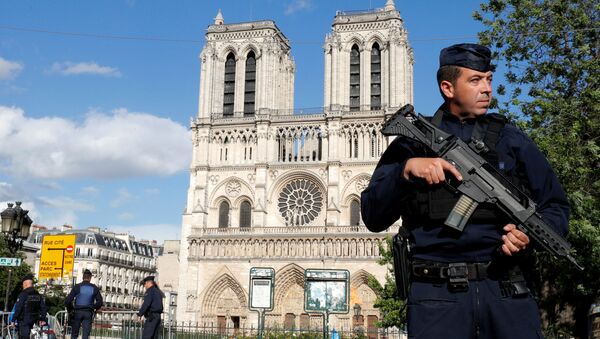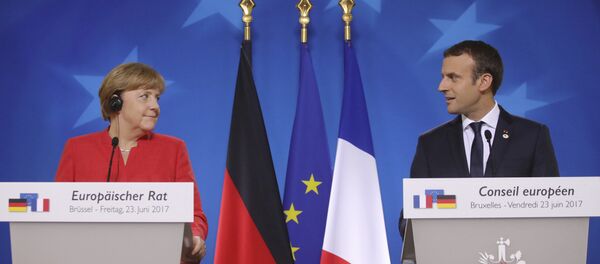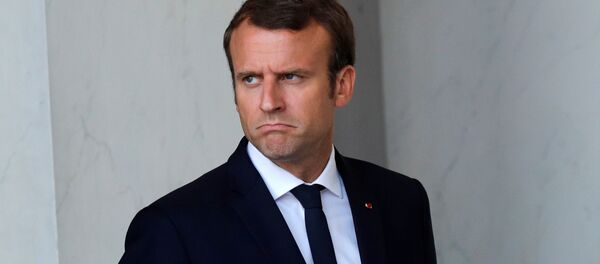The bill, proposed by French President Emmanuel Macron, is meant to end the state of emergency that France has been under since the November 2015 Paris terror attacks perpetrated by Daesh that left 137 people dead. The state of emergency has been repeatedly renewed as 19 additional incidents of terrorism have occurred since the Paris attack, leading to 94 additional deaths.
Macron and the French Parliament voted to implement new legislation starting on November 1 that would allow the state of emergency to end by transferring certain policing powers from only existing during a state of emergency into permanent law.
The bill would enshrine most of the special emergency police powers into common law, such as placing suspects under house arrest, closing places of worship, expanding "stop-and-search" operations in predesignated areas, and allowing for house raids and searches under a lower standard of evidence.
UN rapporteurs have criticized the French bill, which could create a "permanent emergency situation" by removing judges and other legal apparatuses from the process of policing. Michel Forst, UN special rapporteur on the situation of human rights defenders, warned that the law may single out Muslims as well.
"The UN is watching France on this also because of France's international impact and standing," said Forst on France Inter radio. "What France does is not trivial. We want France to do better so it doesn't inspire bad practice in other countries."
In addition, a letter from the UN to Paris criticized the bill's "vague definition of terrorism" that that could allow for "emergency powers [to] be used in an arbitrary way."
The most recent drafting of the bill removed several protections in previous versions, such as a 2020 expiration date and annual security reports to Parliament according to Humans Rights Watch.
"For years France, in the name of fighting terrorism, has increased administrative powers while decreasing judicial guarantees," said Benedicte Jeannerod, president of the French branch of HRW. "But this time by perpetuating these exceptional measures and by bringing into law the logic of suspicion the bill crosses a red line."
French Interior Minister Gérard Collomb, called the bill "a lasting response to a lasting threat". He added that the bill was a fair compromise that would end the state of emergency and also "protect our fellow citizens from terrorism" while "the threat remains strong."
The bill also received criticism from the right — for being too lenient. Marine Le Pen, leader of the National Front and Macron's chief rival in the 2017 presidential election, called the bill "defensive and soft."
The state of emergency has proven a thorny issue for French leaders. It is highly unpopular with the French public, but terrorist attacks are even less popular. Macron's predecessor, Socialist Francois Hollande, publicly stated that he intended to end the state of emergency — and just a few hours laters, a man believed to be affiliated with Daesh plowed a truck into a crowd in the southern city of Nice, killing 86 people.
The bill is expected to pass the National Assembly when it is formally considered on October 3.







